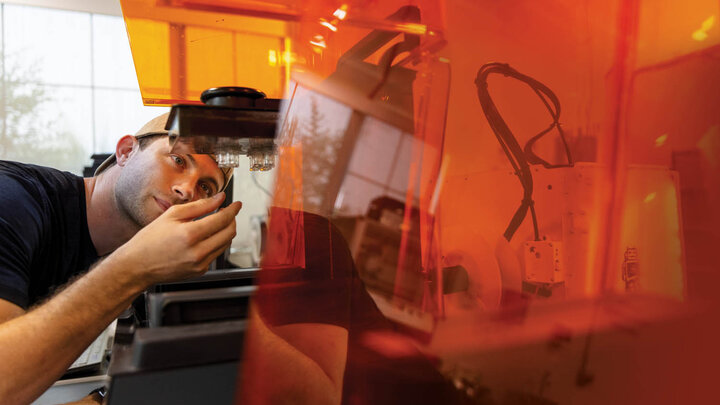Moving Innovations from Bench to Business

Nebraska Innovation Campus, the university’s public-private research hub, has rapidly expanded since its 2010 founding. Now home to more than 55 partners, NIC created $372 million in economic impact and nearly 2,000 jobs in 2020.
The growth of NIC, located adjacent to the university, has included the addition of assets that provide faculty, staff and student startups the workspace, expertise and resources necessary to move their innovations from bench to business.
“We’re proud to support campus innovators as they forge a path from the laboratory to the marketplace,” said Bob Wilhelm, vice chancellor for research and economic development. “These NIC-based resources are intended to help translate university research into products and services that will help people in Nebraska and beyond, and support startups that will boost and diversify our state’s economy.”
The Biotech Connector, Nebraska’s first wet-lab incubator, is housed in NIC’s Food Innovation Center. It provides incubation space and services to bioscience startups and high-growth biotech and research-based businesses. Entrepreneurs can rent anywhere from 6 to 2,000 square feet of lab space with access to shared equipment, mentorship and commercialization support.
Food and agriculture innovators can tap into expertise and networking through The Combine, a statewide initiative targeting high-growth entrepreneurs. It offers incubation space in NIC’s Rise Building and assistance with goal setting and idea assessment, capital readiness and partnership building with Nebraska producers.
Nebraska Innovation Studio, one of the nation’s top makerspaces, is another valuable resource. Its rapid prototyping room – which houses equipment tailored for 2D and 3D materials – benefits startups that need a cost effective, efficient approach for prototyping or modeling. The studio also offers modeling software and equipment for woodworking, metalworking and other creative activities.
NIC is also home to The Suite Spot, a new incubator space where food companies can work closely with the university’s Food Processing Center staff and equipment. The Landing Coworking space provides an address and work station for university-based companies that are working toward seed funding.
“All of these areas and more offer space, equipment and programming for startups, including faculty, staff and student startups,” said Daniel Duncan, NIC executive director. “NIC is proud to be an asset and resource to university, local and statewide startup ecosystems.”
